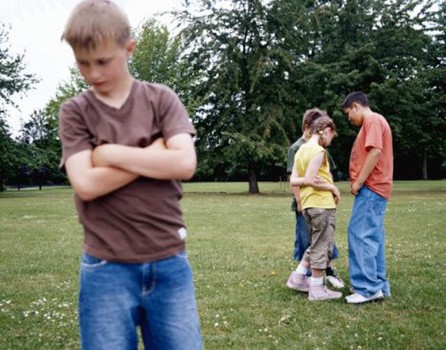A new study suggests that low levels of a specific hormone may contribute to the social difficulties experienced by children with autism spectrum disorders. The research found a correlation between low levels of vasopressin and the inability of children with autism to empathize and form relationships with others.
Vasopressin is a small-protein hormone that helps regulate blood pressure. It also plays a role in social behavior and “theory of mind” – the ability to understand that other people’s thoughts and motivations can differ from one’s own. Poor theory of mind is common in people with autism.
“Vasopressin administered into the brain enhances social functioning in rodents, and experimentally blocking the ability of vasopressin to act in the brain induces social impairment in rodents,” the study’s senior author, Karen D. Parker, PhD, associate professor of psychiatry and behavioral sciences at the Stanford University School of Medicine, told Healthline.com. “We theorized that diminished vasopressin levels in people with autism may be associated with social deficits.”
To test their theory, Parker and her colleagues conducted a two-part study. First, they verified that vasopressin levels in the blood accurately reflected levels in the brain by measuring the hormone’s levels simultaneously in the blood and cerebrospinal fluid of 28 children and adults who had fluid collected for other medical reasons.
In the second part of the study, they recruited 159 children ages 3 to 12 for behavioral testing. Among the group, 57 had autism, 47 did not have autism but had a sibling who did, and 55 were typically developing children.
Study participants completed psychiatric assessments of their neurocognitive abilities, social responsiveness, theory of mind and the ability to recognize others’ emotions. All the children provided blood samples for vasopressin analysis.
The researchers found that vasopressin blood levels ranged from low to medium to high in all three groups of children. Those who did not have autism had similar scores on theory-of-mind tests regardless of their vasopressin levels. However, the children with autism who had the lowest vasopressin levels displayed the most social difficulties.
Because the non-autism group showed a wide range of vasopressin levels that did not result in social problems, it cannot be concluded that autism can be explained by a deficit in the hormone alone.
“Since non-autistic children all scored well on the test, we don’t know whether the relationship between vasopressin levels and theory-of-mind ability is specific to autism as it appears in this study,” acknowledged Parker. She also noted that blood vasopressin levels are not a biological indicator of autism.
Still, the study’s findings raise the possibility that treatment with vasopressin might reduce social problems in autistic children who have low levels of the hormone. Parker and her team are continuing their research in a clinical trial.
“Our optimistic hypothesis is that vasopressin administration will enhance social functioning in children with autism overall,” Parker said.








